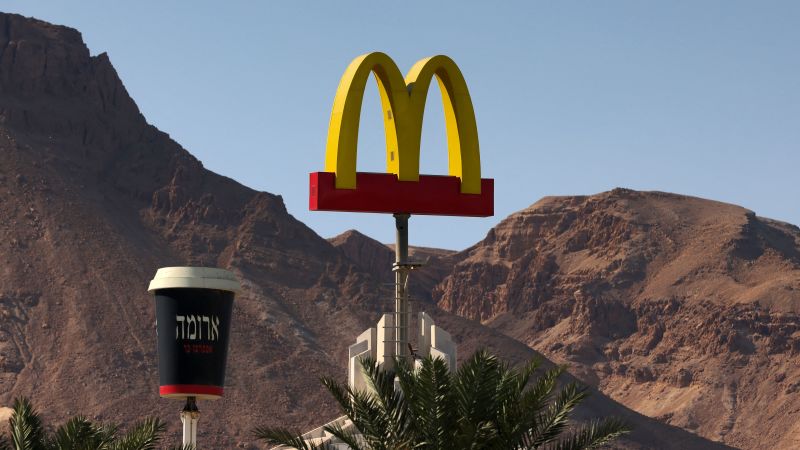McDonald’s announced that it will be purchasing 225 of its franchise restaurants in Israel, just weeks after stating that the Israel-Hamas war was impacting its business. The fast food giant reached an agreement with Israeli franchise Alonyal to acquire its McDonald’s franchise restaurants in the country. Alonyal CEO Omri Padan expressed pride in bringing the Golden Arches to Israel and serving communities for over 30 years. McDonald’s emphasized its commitment to the Israeli market and ensuring a positive experience for employees and customers going forward. The terms of the deal were not disclosed.
The majority of McDonald’s stores worldwide are operated by local franchise operators who function as independent businesses, setting wages, prices, and making decisions at their discretion. This model has contributed to McDonald’s becoming a global phenomenon with over 41,000 restaurants worldwide. However, it also means that the US company cannot dictate how each operator responds in a crisis. In response to attacks by Hamas militants, Alonyal provided discounts to local soldiers and security forces, leading to some McDonald’s operators in the region distancing themselves from the Israeli franchise.
McDonald’s, like other American brands, has faced backlash and boycotts in various markets in the Middle East due to its association with the conflict between Israel and Hamas. CEO Chris Kempczinski acknowledged in January that the company was experiencing a significant impact on its business in the Middle East as a result of the war. During their latest earnings presentation in February, McDonald’s reiterated the negative effects of the conflict on its business and anticipated continued challenges in the future. Kempczinski emphasized the company’s neutrality, stating that McDonald’s is represented by local owner-operators in every country where it operates, including Muslim countries.
The deal between McDonald’s and Alonyal highlights the complexities of operating a global franchise business in regions facing political conflict. The acquisition of the Israeli franchise restaurants underscores McDonald’s commitment to its market presence in Israel despite challenges. McDonald’s efforts to maintain a positive employee and customer experience in the Israeli market reflect their dedication to serving communities and supporting local economies. The varied responses of McDonald’s operators in the Middle East region to the conflict highlight the autonomy and individuality of franchise operators within the McDonald’s system.
As McDonald’s navigates the ongoing impacts of the Israel-Hamas conflict on its business, the company continues to emphasize its neutrality and local representation in various markets. The challenges faced by McDonald’s in the Middle East region due to political tensions underscore the complexities of operating a global brand in diverse and often volatile environments. Despite facing boycotts and backlash in some markets, McDonald’s remains committed to serving customers and supporting local communities worldwide. The acquisition of the Israeli franchise restaurants represents a strategic move by McDonald’s to strengthen its presence in the market and overcome challenges posed by the conflict.


